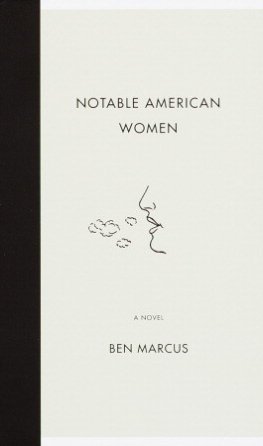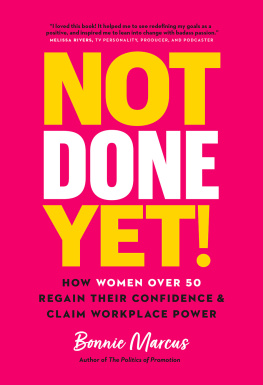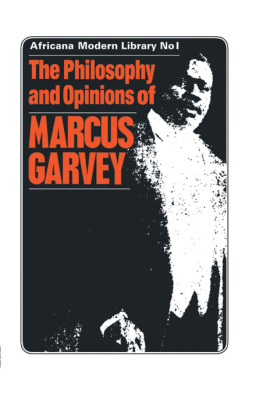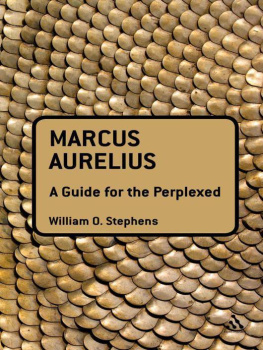Ben Marcus
Notable American Women
I say an unnumbered new race of hardy and well-defined women are to spread through all these states.
Walt Whitman
Crying is a weakness of the face.
Jane Dark
I OFFER THIS MESSAGE UNDER DURESS, hungry, winded, and dizzy, braving a sound storm of words meant to prevent me, Im sure, from being a Father of Distinction. For the sake of those persons in the world who expect leadership, clarity, and a levelheaded account of the matterful times that my family to hell with all of them has witnessed, I will not succumb to the easy distractions of language poison, even if it kills the body that Im wearing, even if I become just another dead man who once felt things keenly and wished only for the world to see inside his heart and mind. There is light enough for one hour of transcription each day, and it is within this time that I have assembled these remarks, having carefully considered the true nature of what I think and feel during my other twenty-three daily hours, allotted to me as darkness by my captors, a group also known as Everyone I Used to Love, Who Would Never Have Survived Without Me.
I am aware that Ben Marcus, the improbable author of this book, but better known as my former son, can pass off or structure my introduction in any way that he chooses: annotate, abridge, or excise my every comment. He will have the final cut of this so-called introduction to his family history, and Ill not know the outcome unless he decides to share with me how he has savaged and defathered me for his own glory. He can obviously revise my identity to his own designs, change my words altogether, or simply discard them in place of statements he wishes I would make. I would put none of these distortions past him and will only caution the careful and fair-minded reader to be ever vigilant against his manipulations, to remember that he is a creature, if that, of inordinate bias and resentment, for reasons soon to be disclosed, undoubtedly intimidated by the truth only a father can offer. Considering that I fathered him with the utmost precision, I am sorry that it should be this way. I fully expect even this statement to be omitted, given how it might contradict the heroic role he will no doubt claim for himself, in which case it is only you, Ben, my jailer, who will read this. Please let a father say his part. You have done enough harm already.
A father naturally has much to say on the topic of his son. If he chooses not to meddle it is out of respect, or at least politeness toward this young man and his grievous errors. To show too much knowledge of my sons undertaking is to crowd the space the boy must fill in his own time, however slow or errant he might be, however much he lurches into travesty or crushes the fathers own deeds with his actions. In such cases, the father, by intruding, obstructs the opportunity for discoveries that mark the basic stages of the boyhood trajectory, in which the son mimes a personhood worthy of the fathers own example. Because the son must learn to behave in a manner in keeping with the father, the father must be a shadow figure at best, a kind of detached bird who can circle and observe without interference, reserving assistance and withholding navigational strategy in order for the son to make a true gain toward the identity of his father, and not cheat into a role that is nearly impossible to attain, that took the father himself many decades to hone and perfect.
Indeed, a father is in no small way the first author of anything the son endeavors to write is he not? given the fathers cultivation of the little boy, his careful employment of language coaching during that time of youth when the so-called mind of his son was aching to be fed its daily words, and his generous delegation of major family writing tasks when this countrys government hired the Marcus family to study the names of women assigning the daily written labors to the son instead of hoarding them (as the father might or should have done) to himself. Not to mention an innovative father who allowed an all-vowel language nutrition to be used on his son in order to groom a new and beautiful brain in the boy, a so-called womens brain.
When so viewed, a father can rightly see his own name, Michael Marcus, just above his sons writing, instead of the name of his son. For if his son gathered food and carried it home, that food would become the property of the residing father, to dispense or destroy as he decided, to boil, bake, or bury. So it is with writing that the son might have undertaken and brought to the father for purposes of examination, correction, or criticism. The son is in all effects an agent of gain for the father, an employee who happens to share a genetic strategy, a facial style, and posture, though little else, apparently. What the son produces through his labor as a man in this world becomes the property of the father, to consume or discard as he likes, and even the sons name Benjamin, in this case (or Ben, as it has been diminished in the world at large, a baby sound more fitting to an animal, if that, a word indicating vast and irrevocable disappointments) can be seen as one of the many stage names adopted by the father, to be borrowed by a person he has set into motion on his own behalf.
It is with sorrow, then, that this father should find such serious fault to Benjamins work, if such a generous word might be applied to his writing. I refer, of course, to the book you are holding or that (if you happen to have on hand an orator or nanny who reads you the days literature) is being recited to you. A father is here inclined to speak critically, and will do so, because of the countless errors and lapses of vision committed by his son, because of the quite un-Marcus-like writing and thinking the son has conducted. How a father wishes that such an intrusion were not necessary and only a quiet celebration were called for instead, an occasion for the Marcus family, such as it feebly remains, to believe once again in its power to exhibit frank statements about the world and its secret histories, a day for such remaining Marcus persons to gather in crew and sip good water together, to breathe in unison and perhaps sing the family ballad, a song I have not heard in some years, as pretty as Family Motivation Music ever was.
Yet such pleasure is not possible, given the travesty of fieldwork on the projects of women submitted here by my son, who is by no means a historian or even a reliable memoirist, entirely lacking in loyalty to the actual world. The very notion at this time of a family reunion is not only suspect but repulsive, and it will not be entertained by any sufficient father, let alone one such as myself, detained in a chamber by his supposed loved ones, surviving despite piped-in language and the occasional presentation of black bread, with strips of fish as thin as paper, and vials of highly suspicious behavior water, which I refuse to consume.
Not only are there inexactitudes of an appalling scale in this book, but events, comparisons, and analyses that threaten to fracture a reality that must in every way be preserved, or else forgotten with dignity. Let our lives at least disappear into nowhere, along with everything else that matters. Had my former son undertaken instead a book more in keeping with his abilities about boats or cars or other craft that boys might need to care about during their period of fascination with motion a father could be amused by the lovely diversion his son had produced (the world needs more books about the enjoyable objects of our time) and feel no need to offer full-scale rectifications, even if they were required, even had the son scored error after error on the subject, which would have certainly been possible, given his consistent capacity to take what is true and bury it deeper even than his own once-loved father for his love for me did run at full steam is buried alive and imprisoned in the field behind his house.















